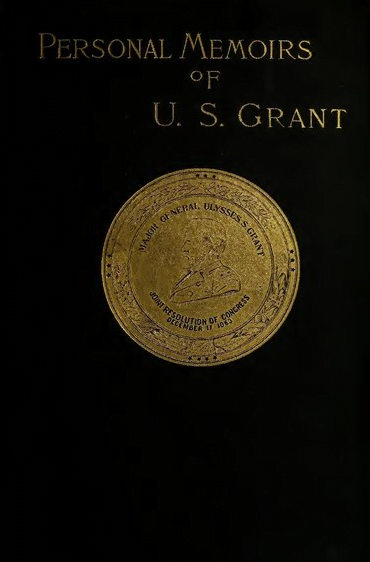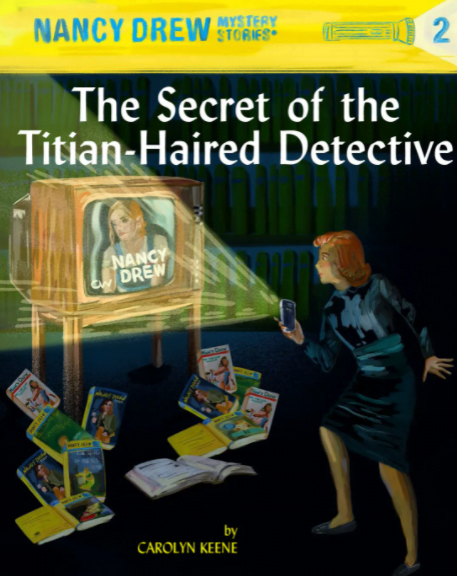A ghostwriter is someone who receives payment to produce literary works belonging to different genres, journalistic works, speeches, or other writings formerly attributed to someone else as the author. In this article, we will look into what ghostwriting is in more detail, the types of ghostwriters, and how you can become one.
Types of ghostwriters
Nonfiction

Celebrities and popular individuals who want to publish their autobiographies or memoirs frequently use ghostwriters. The ghostwriter’s involvement in nonfiction writing assignments might range from small to considerably large.
Fiction

Fiction publishers hire ghostwriters for a variety of reasons. In certain circumstances, publishers use ghostwriters to enhance the number of books that a well-known, highly marketable author can publish each year. Ghostwriters typically create fiction for well-known “name” authors in genres such as detective fiction, mysteries, and adolescent literature.
Podium School brings to you article on Fictional Characters
Furthermore, publishers use ghostwriters to produce new books for established series when the “author” is a pseudonym. For example, the purported authors of the Nancy Drew and Hardy Boys mysteries, “Carolyn Keene” and “Franklin W. Dixon,” are pen names for a group of ghostwriter’s who write books in the same style using a template of basic information about the book’s characters, as well as the tone and style that are expected in the book.
Podium School brings to you article Poetry Genres
Religious

Ghostwriters have contributed to several religious encyclicals. For example, Joseph Lemius (1860–1923) wrote Pascendi, the Oblates of Mary Immaculate procurator in Rome.
Academic
Although the United States, the United Kingdom, or Germany do not prohibit academic ghostwriting, it is considered academic dishonesty and might result in sanctions if discovered by colleges.
Medical
Pharmaceutical firms use medical ghostwriting to pay skilled writers to create articles, which are then signed by other scientists or physicians before they are published in medical or scientific publications. Medical ghostwriting has been chastised by several professional organizations representing the pharmaceutical industry, publishers, and medical societies, as it may violate American laws prohibiting off-label promotion by drug manufacturers, as well as anti-kickback provisions in Medicare statutes.
Website
Some websites, including blogs, are ghostwritten since not all authors have the necessary knowledge or the time to devote to operating a website. Nonetheless, the writer imitates the credited author’s style, tone, and material. Many website ghostwriters are freelancers.
Advantages and Disadvantages of Ghostwriting

Advantages
- Ghostwriters can make money while working on their projects. Although you forego the byline, you are compensated for your services. You also have time to work on your projects in between ghostwriting gigs.
- Assignments can cover practically any topic imaginable. You can write on anything, whether it’s a self-help book, the Vietnam War, or home design. If you enjoy doing research and are eager to learn about new topics, ghostwriting may be the job for you.
- You don’t require any additional credentials to join the field. Advanced degrees and specific qualifications are not necessary to become a ghostwriter. You can succeed as a ghostwriter if you can write well, listen intently to your author, and take meticulous notes.
- You are simply responsible for writing and nothing else. When the project is completed, your obligations are also completed. You are not engaged with the project’s other components, such as production or marketing. Additionally, you do not need to worry about making public appearances or doing interviews to market their books because it will be the author’s responsibility.
- Once established in the profession, ghostwriting may be financially rewarding. Additionally, you receive payment whether or not the book you wrote makes money.
Disadvantages
- Ghostwriting is a highly competitive industry. There are few such possibilities, and even fewer are freely published on employment sites. Assignment leads can be difficult to locate, and developing relationships to identify possible leads can be time-consuming.
- You must forego a byline. Typically, your name will not appear on the completed work. You do not get credit for your work even though you are compensated.
- You are employed by someone else. That individual makes the decisions, with which you may or may not agree. To work with them, you must lay aside your ego, and you will have little influence over the project’s result.
- Strict deadlines and quick turnaround times are possible. Additionally, you may have to work longer hours to meet the deadline because the author wishes to publish a book in response to current events.
- The task may not be particularly fascinating. Although ghostwriters may cover a wide range of topics, you may find them uninteresting or beyond your area of expertise.
How much do Ghostwriters get Paid?

By the project
You receive a project cost for full-length novels, memoirs, screenplays, and business publications. The cost is based on the ghostwriter’s qualifications, areas of experience, amount of research necessary, desired timetable for completion, and whether the client intends to assist in the writing process. A competent ghostwriter may earn $20,000 to $50,000 per assignment on average, and much more if the client is a celebrity. The starting salary for a ghostwriter is roughly $5,000.
According to the page
Ghostwriters are used by trade publications, consumer magazines, and college students to research and produce articles, business columns, thesis projects, and term papers. Ghostwriters are often paid by the page and given a set of particular restrictions, including presentation forms. The typical rate is $12 per double-spaced page, but it can rise to $65 per page if the turnaround time is shorter than 24 hours.
By the word
The word-count payout for ghostwriting tasks such as brochures, short booklets, newsletters, press kits, advertorials, and press releases ranges from $0.30 to $5 per word. The author receives payment once the job is complete.
According to the Hour
Ghostwriters are paid by the hour and sometimes include consulting costs in the payment. This arrangement works effectively if the ghostwriter and the client are planning a long-term collaboration. The customer essentially hires the ghostwriter on a retainer basis to create syndicated columns, speeches, promotional material for advertising campaigns, and blogs and articles. The salary ranges from $35 to $120 per hour.
How to Start as a Ghostwriter?
Working as a ghostwriter necessitates that you be both a skilled writer and a good listener. If this type of employment appeals to you, explore the following steps:
Create a network.

There’s no denying that personal relationships are quite beneficial, so network whenever feasible. If you meet the proper individuals, word of mouth might spread to new clients looking for ghostwriting services.
Request Recommendations.
It’s also critical to inform people that you’re searching for a job as a ghostwriter. Word of mouth has a proven track record of influencing behaviour, but only if others in your social networks are aware of your intentions. Make your objectives known to people with publishing business ties in particular.
Improve your craft.
The most crucial thing you can do is publish samples of your writing. One method is to self-publish your books. You may also start a blog or create and produce your podcast series. Understand that whichever format you choose, the work you accomplish under your name can help you find writing employment under someone else’s identity.
Improve your interviewing skills.

Typically, ghostwriting services begin with comprehensive interviews conducted by the writer and their ghostwriting clients. Thus, it is essential to improve your interviewing skills.
Create your personality.
If you can establish a name for yourself with certain publishing businesses or within a network of people, you may build a full-time career out of ghostwriting books, as one task can rapidly lead to additional recommendations. However, if at all feasible, continue to make time for projects in which you write in your unique voice. You may keep both a ghostwriting style and a personal writing style while reaping the financial and creative benefits of doing so.
Work as a freelance writer.
Yes, becoming a freelance writer before becoming a wealthy ghostwriter is a wonderful idea. As a freelance writer, you may simply enhance your credibility.
7. Make sure you have a writer website.
Demonstrating your worth as a high-paying writer is the first step to begin ghostwriting. A writer’s website is where clients can browse your portfolio, learn about your specialisation, read testimonials, and contact you. Your website must be set up to optimise the likelihood of suitable clients choosing you after discovering it.
Work as a freelance editor.
Many freelance editors edit books, which is a terrific way to introduce your ghostwriting skills. The client may sometimes include your name as one of the writers as a “with” note or as the editor. In any event, because you are editing your customers’ efforts, it’s not a big leap to tell them that you’d be pleased to assist them to ghostwrite a book in the future.
Become comfortable with large projects
The most financially rewarding ghostwriter is ghostwriting novels. Ghostwriters are hired by doctors, financial consultants, and attorneys to write their books or memoirs. Thus it is important to make yourself familiar with writing over 10,000 words, which can be a challenge for a few writers.
Publish a book or two
Many ghostwriters have also published authors. Many of them discover that working as a ghostwriter complements their existing business. So, if you’re a freelance writer who also published a book, you may also work as a ghostwriter!
Guidelines for Ghostwriters
Always meet your customer in person.
You can gain so much more information when you meet with a customer face to face.
Keep in mind that it is their book, not yours.
You were employed for your knowledge, and you should always give them honest counsel – but keep in mind that they make the final decision. You must put your ego aside and realise that you are the pen and they are the author.
Never lose sight of the fact that you are a company.
You must tread all possible steps to expand your business, which includes recruiting new clients while balancing it with the job you already have. If you focus too much on the real job every day and ignore the sales, you will soon find yourself fighting to keep the lights on. On the other side, if you spend all of your time promoting and selling, you may not have enough work to support you, or you may overlook tasks that you should be doing, which can harm your relationships with paying clients.
Make a lot of connections.
As mentioned before, networking is key when you are a ghostwriter. The purpose of networking is not to sell. That will immediately turn them off. What they do want to connect with you, so constantly offer to assist in any way you can. You never know when they will call you to engage you in a job or refer you.
Establish a daily routine.
Even if you are the ghostwriter, this does not imply you are immune to the same pitfalls as other authors. Set daily word count objectives and stick to a timetable.
Keep track of everything.
You never know when a nugget of insight or inspiration may strike you when speaking with your customer, so document everything. It’s often difficult to remember precisely what they said after it’s out. Therefore, making a record of it ensures that you won’t forget about it.
Maintain secrecy.

It is both ethically and legally important to not divulge who you are writing for. However, you can always approach some of your older customers to act as references if required.
Continue to be relevant in your writing.
Because it might be difficult to publish previous work owing to non-disclosure agreements, it is critical to create books, articles, and blogs under your name. It will sharpen your talents, expand your portfolio, and boost your reputation. Furthermore, it serves as an excellent marketing tool and may lead to further work.
Be prepared to say “no.”
It may seem counterintuitive to reject a potential customer, but it is sometimes in the best interests of both of you. When going inside someone’s psyche and writing their book, the relationship and dynamics are crucial. Trust your instincts and gut feelings. It won’t get any better if it doesn’t feel right from the start.
Keep a list of other ghostwriters on hand to refer to, and others may return the favour or even give you a finder’s fee. Furthermore, no one is an expert in every subject. Some ghostwriters specialise in certain areas of writing.
Take proper care of yourself.
Change your position. Exercise. Allow your skin to be exposed to sunlight regularly. It is easy to get isolated in your job, which is bad for your body, mind, and spirit. Make healthy foods readily available, and arrange walks, runs, or gym time. A healthy body is equivalent to a healthy mind, and a healthy mind is equivalent to literary genius.
FAQs
Who are the most famous ghostwriters?
| Ghostwriter | Book |
| Alan Dean Foster | Star Wars: From the Adventures of Luke Skywalker |
| Peter Lerangis | Seven Wonders” series and “39 Clues” series of children’s books |
| Novels based on film screenplays, such as “Beauty and the Beast,” “Sleepy Hollow,” and “The Sixth Sense” | |
| H.P. Lovecraft | Wrote “Imprisoned with the Pharaohs,” one of Houdini’s escape acts |
| Raymond Benson | Involved in the novelization of several James Bond stories, including “The World is Not Enough” and “Tomorrow Never Dies” |
| Andrew Neiderman | Finished the last book of the Dollanganger series, “Garden of Shadows. |
| Ryan Nerz/Daniel Ehrenhaft | Involved in the last books of the Sweet Valley series credited to Francine Pascal |
| Mark Twain | Wrote President Ulysses S. Grant autobiography |
| Aleister Crowley | Involved in writing “Astrology: Your Place in the Sun” credited to American author Evangeline Adams. |
| Robert Lindsay | Wrote the 1990 autobiography of Ronald Reagan entitled “An American Life” |
| Julia Turshen | It’s All Good: Delicious, Easy Recipes that Will Make You Look Good and Feel Great,” a cookbook credited to Hollywood actress Gwyneth Paltrow. |
Is ghostwriting illegal?
Ghostwriting is not against the law. People can’t be excellent at everything, and while some people are brilliant at governing or leading a business, they may not be the best at articulating the written word. Thus, ghostwriting is an excellent opportunity for leaders and experts to obtain the assistance of a skilled writer to help draught and refine their message.
However, if you are a student and someone else writes your paper, it would most likely be deemed academic dishonesty and will result in you failing the course and perhaps being expelled from the school if you are found out.
How Do You Get Ghostwriting Jobs and Market Yourself as a Ghostwriter?
– Write content for guest posts
Guest posting about ghostwriting is an easy approach to advertise oneself as a ghostwriter. For example, ghostwriter Karen Cole created a guest article on “What Is Ghostwriting for Freelance Writing”. Her author profile informs us about her ghostwriting service and includes a link to her author website.
Here are some blog article ideas you can use:
- How to find and hire a Ghostwriter
- How can ghostwriters develop their writing voice?
- What is involved in ghostwriting a book
- 10 errors new ghostwriters make
– Use social media platforms like Facebook
Facebook is a fantastic social media network for meeting new people. Join Facebook communities for authors or solopreneurs/entrepreneurs and seek ghostwriting threads or pay attention to ghostwriting threads.
– Market yourself as a ghostwriter for hire
Make sure to include the phrase “ghostwriter” in your profile on social media websites like Twitter, Instagram and even Pinterest. This can assist you to recruit the proper sort of clients or just spread the word that you provide ghostwriting.
Who is the owner of the content?
This is most likely the most prevalent issue, and it is the most critical element to include in ghostwriting contracts. In the event of ghostwriting, the writer does not retain the default ownership of the content. Any ghostwriting contract must specify unequivocally that the writer is giving up copyright to the work in return for remuneration.
The contract includes works like:
- The author acknowledges that the works made under the contract are “works for hire.”
- The writer acknowledges that the works are the client’s property.
- The writer accepts that the customer owns all copyrights linked with the work.
What to include in a ghostwriting contract?

Consider working with a legal practitioner to ensure the ghostwriting contract has all of the provisions and specifics necessary to protect the author and the writer. Check that it covers everything on the checklist given below:
- Clauses stating who owns the copyright
- An NDA (nondisclosure agreement)
- Payment specifics include how much the writer will be paid when the will be paid and the mode of payment.
- Clauses define this as a contract agreement stating that the writer or service is liable for any taxes or other duties. The contract must show that the job is not seen as a regular employment scenario.
- Specifics concerning the work’s expectations, such as:
(a) Quantity: for example, the number of blog entries, articles, product descriptions, social media postings, or book chapters.
(b) Length: A word count range for each component, such as 800-1000 words for a blog post.
(c) Timeline: When does the author expect specific aspects of the task to begin and when should they be completed.
(d) Revision needs: The number of revision rounds the author expects to be included in the pricing; it’s usually a good idea to include at least one round.
(e) Research needs: How much research does the author anticipate the writer to conduct for the assignment. It is important to keep in mind that more research takes more time and may increase the cost of the project.
https://www.youtube.com/embed/HShyWVcQ4mY?feature=oembedContract of Ghostwriting

Share with your friends






